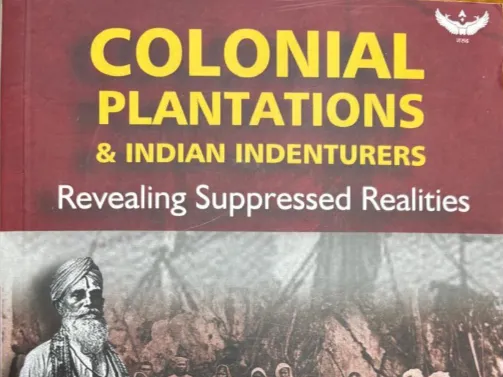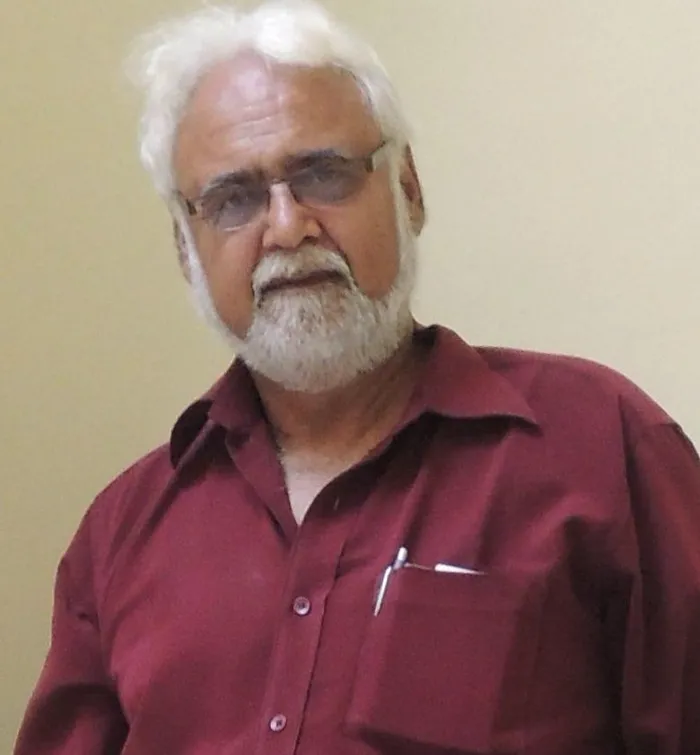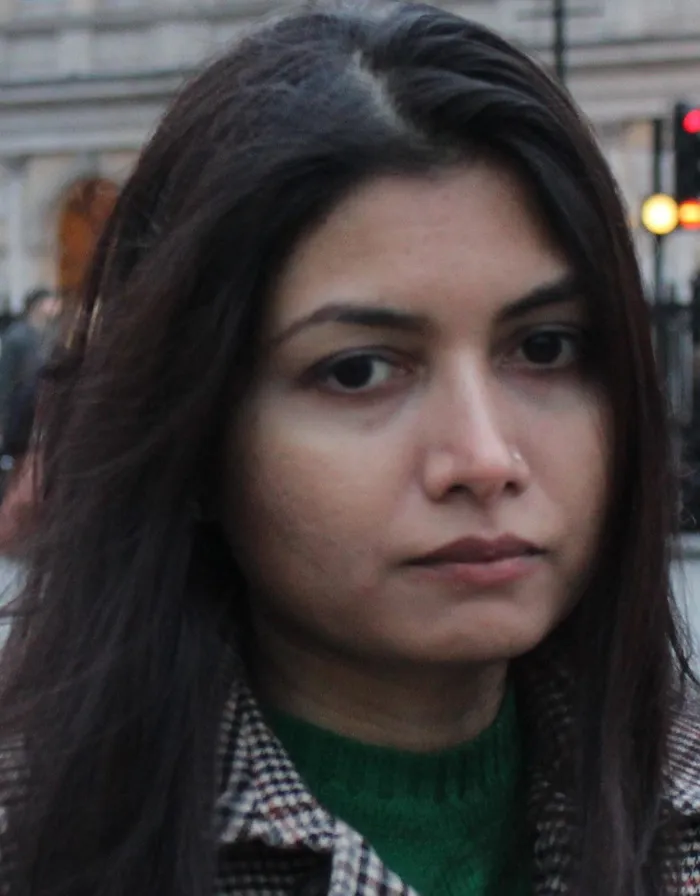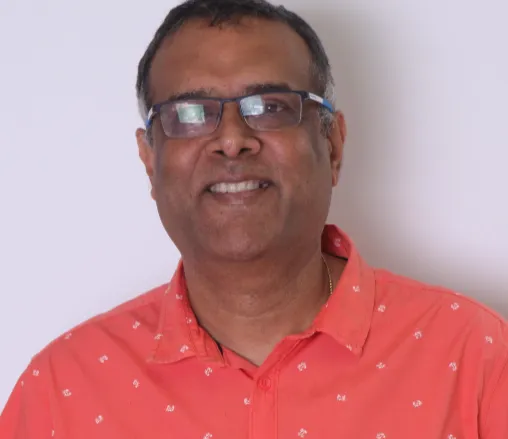From indenture to identity, honouring the past and shaping the future
Resilience and contributions

The book was launched at the event.
Image: Supplied
THE Global Girmitya Centre SA seminar focused on the history, identity, and challenges faced by the Girmitya community, emphasising their resilience and contributions to their host countries despite historical oppression and discrimination.
On this occasion, a book - Colonial Plantations and Indian Indenturers, Revealing Suppressed Realities - by Professors Kapil Kumar and Sandili Maharaj-Ramdial was released.
Online delegates from India and diaspora countries, Trinidad and Tobago, Guyana, Fiji, Mauritius, and South Africa joined the 200 participants who were present at the Umhlanga venue on Saturday for the seminar.
Participants discussed the need for preserving and documenting Girmitya identity, history, promoting cultural heritage, and advocating for community rights, while maintaining connections to both their host countries and India that is called Bharat from where their forebears left.

Professor Kapil Kumar.
Image: Supplied
Indian Diaspora’s resilience in South Africa
Dr B Singh of the Global Girmitya Center discussed the history and challenges faced by the Indian diaspora in South Africa, emphasising the impact of colonialism, racism, and socioeconomic disparities. He highlighted the community’s resilience and resistance throughout history, while also addressing the need for greater recognition and understanding of their contributions and struggles.
The Global Girmitya Centre called for more qualitative research to interpret and share this history, aiming to educate both South Africans and the global diaspora. He expressed hope that this meeting would contribute to a better understanding of the community’s unique journey and identity.

Professor Dr Sandili Ramdial-Maharaj
Image: Supplied
Girmitya identity and economic contributions
Ravi Dev, a Guyanese corporate lawyer and human rights activist, spoke about the Girmitya identity and its development. He emphasised that diasporic identity was not a natural result of migration but a historical contingency that arises in response to specific critical events.
Dev highlighted the challenging conditions faced by Girmitya people, including low wages and discrimination, and discussed how they overcame these obstacles by working hard, saving, and building new industries in their host countries. He noted that Girmitya communities have made significant contributions to agriculture, particularly in rice cultivation, and have helped build the economies of their respective countries.
Indian diaspora citizenship rights struggle
Dev discussed the historical struggle for citizenship rights among Indian diaspora communities, particularly in South Africa and Guyana, highlighting how colonial powers denied full citizenship and voting rights to Indian immigrants. He explained how the term
“East Indian” emerged from the British colonial labelling system and described how communities organised politically to assert their rights, including through the British Guiana East Indian Association. Dev concluded by urging South African Girmitya communities to engage politically, while maintaining their cultural identity, emphasising that citizenship encompassed cultural, political, and economic dimensions.
Revisiting girmitya history and resilience
Professor Kapil Kumar discussed the historical narrative of Indian indentured labourers, or Girmityas, in the Caribbean, highlighting the need to move beyond colonial terminology and explore suppressed realities.
He criticised historians for misrepresenting Girmitya history and challenged colonial justifications for indenture. He emphasised that Girmityas were not solely poor individuals forced to migrate due to poverty but included freedom fighters deported as punishment after the 1857 Mutiny against the British. This uprising is regarded as the first war of independence.
He called for a more comprehensive understanding of Girmitya history, including the brutal conditions of their migration, forced conversions, and the community’s resilience in maintaining Indian culture despite oppression.
Kumar also expressed concern about the current state of Girmitya studies, warning against researchers prioritising academic careers over genuine passion for the subject.
Direct flights and diaspora psychology
Kumar emphasised the need for direct flights to connect Girmitya countries, especially to Caribbean and Pacific regions to reduce travel time and costs, highlighting the emotional impact on Indian communities awaiting the dispersion of ashes.
Professor Ramdial-Maharaj, a psychologist, discussed the psychological effects of oppression on Indian diaspora communities, particularly in Trinidad, and the importance of understanding the psyche of both oppressors and the oppressed. She highlighted the continued impact of historical trauma, discrimination, and conversion on mental health, and the need for culturally relevant psychological approaches.
Colonial oppression and cultural identity
Ramdial-Maharaj discussed the oppressive nature of colonial rule and highlighted the need to question and understand the historical causes of India’s poverty. She emphasised the multi-layered oppression faced by the Indian diaspora, including both external colonial powers and internal oppressors, and called for a re-evaluation of identity and cultural preservation.
Professor Ganesh Chand, retired Vice Chancellor at Fiji University, who was invited to speak about the future of Girmitya’s. Ganesh began his talk by referencing a recent incident of temple desecration in Fiji, emphasising the importance of understanding history to shape the future.
Girmitya community evolution overview
Ganesh presented a historical overview of the Girmitya community, highlighting their evolution from indentured labourers to independent individuals. He discussed the community’s investments in faith, education, infrastructure, and politics, and noted a shift towards self-centred focus after gaining political independence.
He emphasised the importance of community engagement and suggested forming a global Girmitya organisation to articulate their identity and achievements internationally. The discussion that followed touched on the lack of engagement from the Mauritian community and the unique circumstances that have allowed Mauritius to maintain a closer relationship with India.
Girmitya heritage documentation initiative
The meeting focused on the Girmitya community’s historical and cultural heritage, particularly in South Africa. Participants discussed the need to document and preserve Girmitya history, including digitising archives and integrating it into school curricula.
There was also discussion about the Overseas Citizens of India (OCI) card and its role in facilitating access to ancestral roots. The group emphasised the importance of serious, committed research into Girmitya history and the need to balance loyalty to both host countries and India.
Girmitya community empowerment initiative
It also focused on the identity and rights of the Girmitya community, emphasising their resilience and achievements despite historical hardships. Participants discussed the need for unity, recognition of their cultural heritage, and the importance of advocating for their rights without seeking legitimacy from the Indian government.
Ambassador Professor Anil Sooklal proposed hosting a global Girmitya Conference in South Africa before the year’s end, with a small committee formed to plan and fundraise for the event. The conversation ended with a call to action for the community to take charge of their future and organize independently.
Professor Kumar will assist with the transfer of digitised files from National Archives of India to the Girmitya Archives.

Pradeep Ramlall
Image: File
Pradeep Ramlall is the secretary of the Global Girmitya Center – South Africa
** The views expressed do not necessarily reflect the views of IOL or Independent Media.